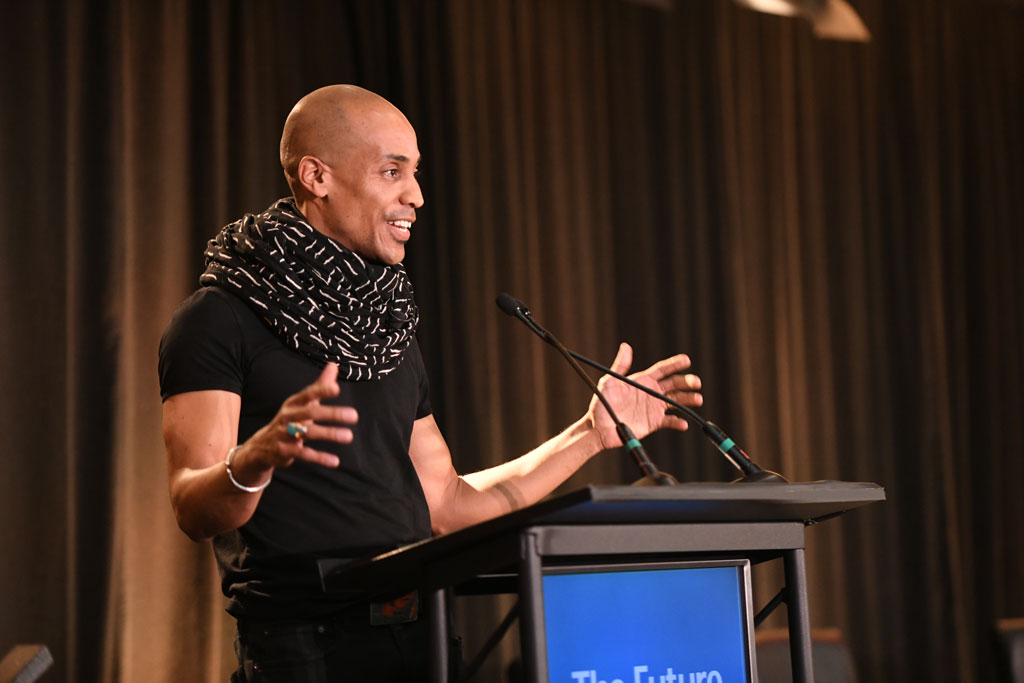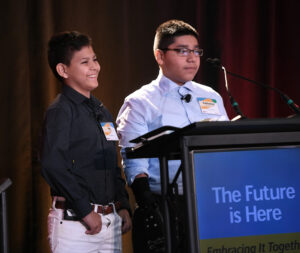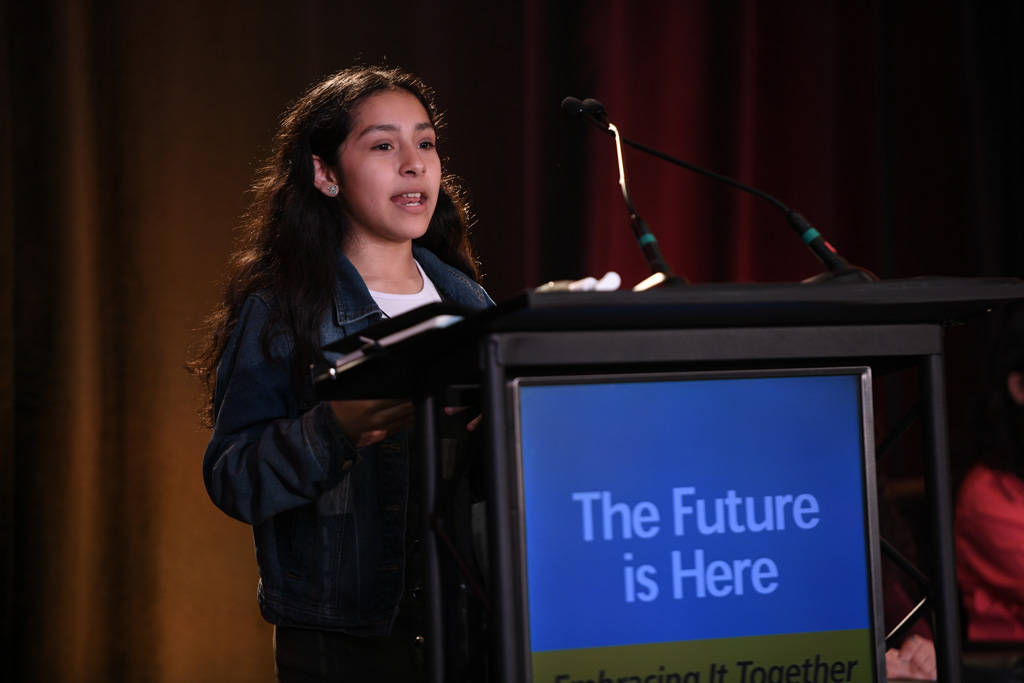More than 500 STEM Leaders Explore Issues of Equity in STEM Education

SAN ANTONIO – Kamau Bobb, a nationally recognized expert in STEM education and equity, said he wound up on the cover of brochures for almost every college he attended.
“At first, I thought it was because I was cute,” Bobb told a group of 500 STEM leaders attending the STEM Learning Ecosystems Community of Practice, SLECoP, convening in San Antonio. Later, he realized that it was because of the color of his skin.
“You don’t take a white boy and put him on a brochure because schools want to show that they are diverse,” Bobb said.
“The expectation is that black kids can’t do it [achieve], If they do, they’re like superheroes,” Bobb said. “I am always asked what I did to get where I am, but the reality is that I did my homework and turned it in just like everyone else.”
Bobb warned the audience of the danger of such low expectations for children of color, in particular, black boys.
Bobb was one of three speakers on a keynote panel, “Inventing Tomorrow: Cultivating a New Generation of Problem Solvers,” sponsored by the Lemelson Foundation with support from Qualcomm Foundation. Bobb and other panelists are interested in creating conditions that will eliminate barriers for marginalized students and foster students’ ability to invent.
“We must remember that marginalization is not a passive thing – it’s active,” said Bobb. “Someone is culpable.”
Other panelists echoed that it is critical to address the factors that cause students to be kept on the outside.
Katelyn Sweeny, an engineer, and Kristin Moon, a teacher with the Portland Public Schools, both agreed that teachers need to get out of the way of their students and act as allies for them.
Moon said it is important for educators to “be able to take small risks within their classrooms. Those risks enable students to aim higher and achieve more.”

The Lemelson Foundation has created an invention education framework intended to provide educators and others with a common understanding of invention education. That framework and numerous other resources to further invention education are being shared at the SLECoP convening.
Other speakers at the convening included Nathanael De Leon, a San Antonio 7th grader, who was born without his right hand. His classmates designed and printed a robotic hand for him that now enables him almost total mobility.
Nathanael was one of six students on a panel, “Student Perspectives: A Panel of Future Inventors, Innovators and Entrepreneurs.”
Another student on the panel, Alicia Amber De Hoyos, urged leaders to reform the educational system.
“The school system is still the same way it has been for more than 100 years. Our school system needs to advance too,” Amber said.

Monday concluded with San Antonio students participating in an “Invention Convention,” sponsored by the Henry Ford Museum, with support from the Lemelson Foundation and others. Students showed off their inventions to leaders of the STEM Learning Ecosystems, with the hope of winning prizes and the right to advance to a national competition.

